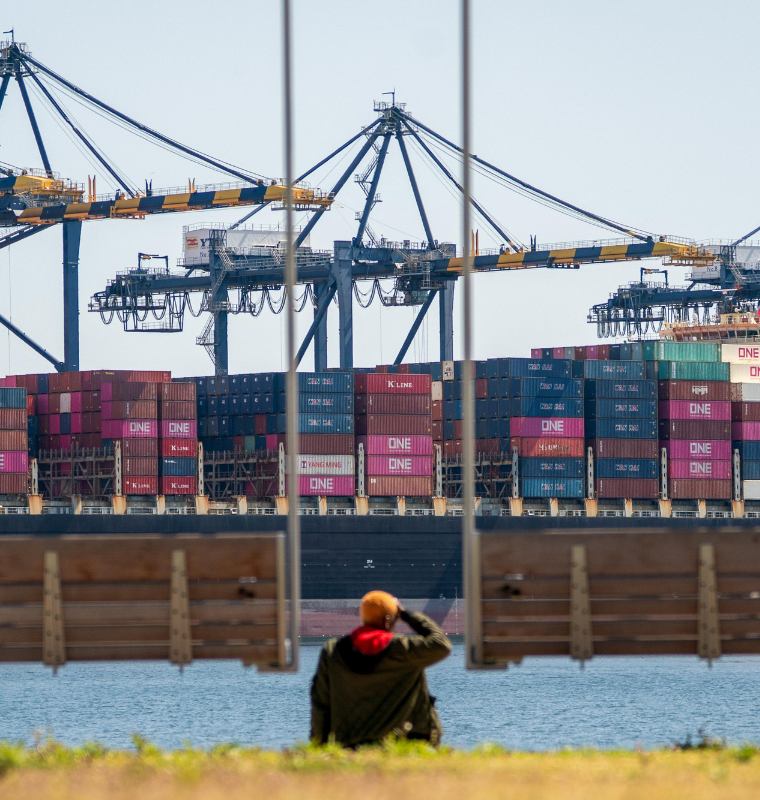Treasury Secretary Bessent Signals Progress Toward U.S.-China Trade Agreement as Key Deadline Approaches
Treasury Secretary Bessent Signals Progress Toward U.S.-China Trade Agreement as Key Deadline Approaches
By
Leah Rosenfeld
Last updated:
August 1, 2025
First Published:
August 3, 2025

Photo: Yahoo
U.S. and China Move Closer to Trade Deal, Says Treasury Secretary
Treasury Secretary Scott Bessent shared a hopeful outlook on Thursday regarding ongoing trade talks between the United States and China, signaling that the two economic giants are nearing a potential agreement ahead of a critical August 12 tariff deadline.
“I believe that we have the makings of a deal,” Bessent told CNBC’s Squawk Box. He acknowledged that some “technical details” still need to be resolved on the Chinese side, but expressed confidence the deal will be finalized, emphasizing, “It’s not 100% done, but it’s close.”
Details Remain Under Wraps; Presidential Sign-Off Pending
While Bessent refrained from revealing specifics about the potential agreement’s terms, he confirmed that the discussions have been intense and complex. He noted he has not yet briefed President Donald Trump on the progress, highlighting that the President insists on personally approving any final deal with China.
“The Chinese are tough negotiators. We’re tough, too,” Bessent remarked, reflecting the challenging dynamic that has defined the U.S.-China trade relationship for years.
Background: Tariffs and Temporary Truce
The two countries have engaged in a protracted tariff war since 2018, with the U.S. initially imposing duties as high as 145% on certain Chinese imports. China retaliated with tariffs reaching 125% on U.S. goods. After months of escalations, both sides agreed to a truce that temporarily lowered these tariffs — the U.S. bringing its rate down to 30% and China reducing its tariffs to 10%.
The August 12 deadline marks a critical point when the current tariff reductions could expire if no agreement is reached, potentially triggering a resumption of higher tariffs and further disruptions to global trade.
Strategic Concerns Beyond Tariffs
Bessent’s remarks also come amid growing U.S. concerns over China’s role in international geopolitics, including its purchases of Iranian oil despite sanctions and its provision of technology to Russia that could be used in military conflicts. These issues add layers of complexity to the trade negotiations, underscoring that the talks extend beyond tariffs to broader security and diplomatic considerations.
Outlook: What a Deal Could Mean
An agreement between the U.S. and China would likely ease tensions in global markets and offer relief to businesses facing increased costs from tariffs. Analysts estimate that a deal could restore billions in trade value, boost supply chain stability, and improve investor confidence worldwide.
However, experts caution that even with a deal, many structural issues—such as intellectual property rights, technology transfers, and enforcement mechanisms—will require ongoing dialogue.
As the August 12 deadline approaches, Treasury Secretary Bessent’s optimistic yet cautious stance suggests that while a resolution remains within reach, final hurdles must be overcome. Both nations appear committed to negotiation, but the path ahead remains challenging amid intertwined economic and geopolitical concerns.
Popular articles
Subscribe to unlock premium content
Merch, Meals, and Memories

Innovating One Feature at a Time

Zero Taxes, Maximum Attraction – Why Monaco is the ultimate playground for the wealthy.

Merch, Meals, and Memories

Innovating One Feature at a Time

Merch, Meals, and Memories







.png)

